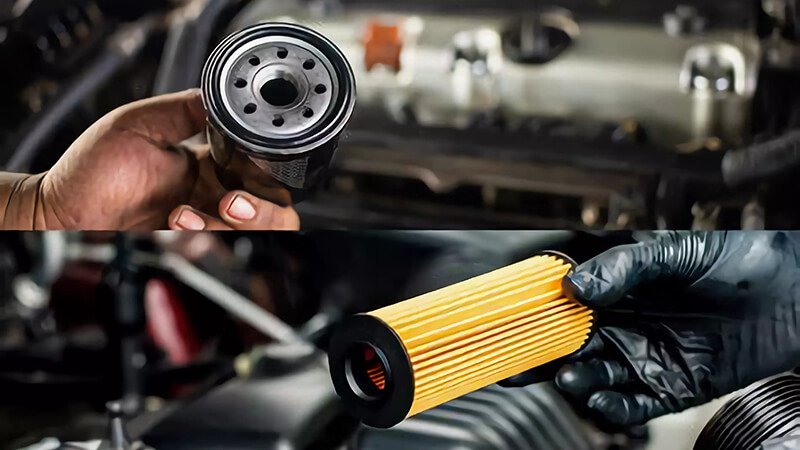Choosing the right oil filter for your vehicle is essential for maintaining engine performance. But with so many options on the market, how can you be sure you're making the right choice? Let’s explore how to select the perfect oil filter to keep your car running smoothly.
The right oil filter plays a crucial role in maintaining the health of your engine. It’s essential to select one that fits your vehicle's specifications, ensuring proper filtration. But how do you determine which filter is the best fit for your car? Let’s dive in.
Selecting the correct oil filter is not just about brand or price. It’s about matching the right filter with your vehicle’s needs. Let's look deeper into how you can find the right filter and oil combination for your car’s engine.
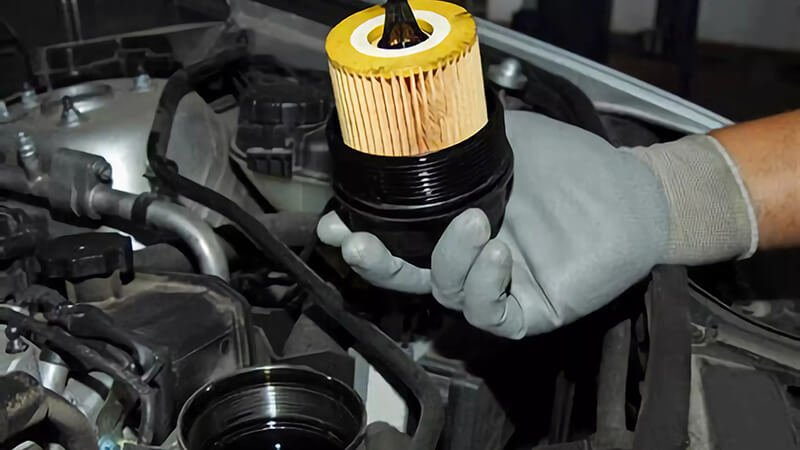
How to choose the right oil filter for your car?
Choosing the right oil filter for your car isn’t a one-size-fits-all process. Every vehicle has specific requirements based on engine type, manufacturer recommendations, and intended usage. How do you know which one to pick? Let’s break it down.
To choose the right oil filter, start by considering your car's make and model, engine type, and driving habits. Always follow the manufacturer's guidelines to ensure optimal engine performance and longevity.
When selecting an oil filter, the key is matching the right filter to your vehicle’s engine specifications. Oil filters vary in terms of size, filtration material, and performance characteristics. The first step in choosing the correct filter is to refer to your vehicle’s owner manual for recommendations. This will tell you the exact size and type of filter that fits your engine.
Oil filters can be classified into several categories, including:
-
Spin-on Oil Filters1: These are the most common filters used in modern vehicles. They are easy to install and replace, making them popular in many passenger vehicles.
-
Cartridge Oil Filters2: These filters require a special housing and are often used in more high-end or specialized vehicles. They are considered more environmentally friendly as they reduce waste by allowing the housing to be reused.
-
Magnetic Oil Filters3: These filters contain a magnetic element that helps capture metallic particles in the oil, improving filtration efficiency, especially in engines prone to wear.
Additionally, the material used in the filter media can make a significant difference in filtration efficiency. High-quality filters use synthetic or multi-layered media that can trap more contaminants and provide better protection for the engine. Paper filters, while common, may not offer the same level of filtration.
Types of Oil Filters
| Type of Filter | Features | Best For |
|---|---|---|
| Spin-on Filters | Convenient and easy to replace. | Common in most passenger vehicles. |
| Cartridge Filters | Environmentally friendly, reusable housing. | Premium and specialized vehicles. |
| Magnetic Filters | Includes a magnet to trap metal particles. | Engines with high wear potential. |
Furthermore, the oil filter's micron rating refers to the size of the particles it can filter. A higher micron rating indicates better filtration. Premium filters often have lower micron ratings, meaning they can capture smaller contaminants, offering superior protection for the engine.
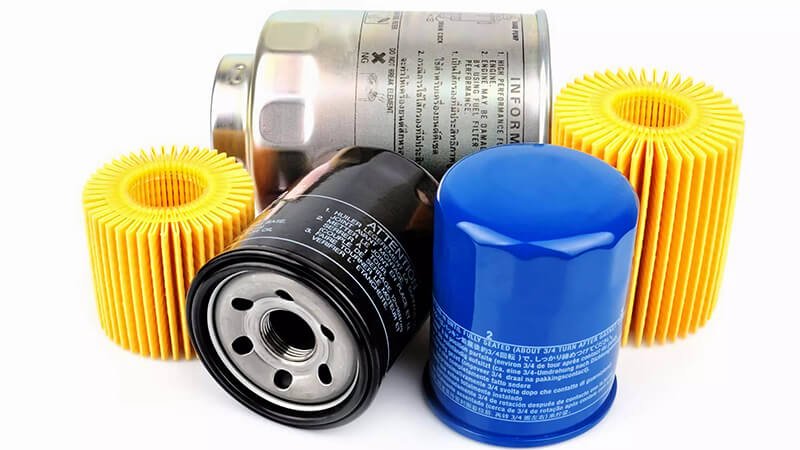
How do I find the right oil for my car?
The oil filter works hand-in-hand with the oil in your engine. But how do you find the right oil for your car? The right oil ensures that your engine runs smoothly and efficiently, complementing the work done by your filter. Let’s find out how to choose the best oil.
Finding the right oil for your vehicle is just as important as choosing the right filter. The oil must meet your vehicle’s specifications, based on the engine type, climate, and driving conditions.
Choosing the right engine oil goes beyond just looking for the cheapest option or the first bottle you find on the shelf. It requires careful consideration of several factors, including the viscosity4, oil type5, and your vehicle’s specific performance requirements6.
-
Viscosity:
The oil's viscosity rating indicates how easily it flows at various temperatures. It’s marked by numbers like 5W-30 or 10W-40. The first number (before the “W”) represents the oil's flow in cold temperatures (winter), while the second number represents its flow at higher operating temperatures.- A lower viscosity oil (e.g., 5W-30) is ideal for colder climates as it remains fluid in lower temperatures, ensuring smooth engine startup.
- A higher viscosity oil (e.g., 10W-40) is better for hotter climates or high-performance engines, where thicker oil helps provide additional protection against heat and friction.
-
Oil Type:
Engine oils come in different types, each with specific benefits:- Conventional Oil: Ideal for older vehicles or cars that experience mild driving conditions.
- Synthetic Oil: Offers superior performance in high-performance or newer vehicles. It performs better at extreme temperatures and provides enhanced engine protection.
- Synthetic Blend: A combination of conventional and synthetic oils. It provides many benefits of synthetic oils but at a lower price.
-
Additives:
Oils often contain additives that improve performance, such as detergents (to clean the engine), dispersants (to prevent sludge buildup), and anti-wear agents. Make sure the oil you select includes the necessary additives for your engine type and driving conditions.
Choosing the Right Oil Type
| Oil Type | Features | Best For |
|---|---|---|
| Conventional Oil | Basic protection and low cost. | Older vehicles with standard needs. |
| Synthetic Oil | High performance, better at extreme conditions. | Newer cars or high-performance engines. |
| Synthetic Blend Oil | Combines the best of both worlds. | Vehicles with moderate usage or varying conditions. |
Additionally, when selecting oil, it's important to consider the API service classification. The API (American Petroleum Institute) grade, such as API SN, indicates the oil's quality and the type of engine it’s designed for. Always ensure the oil you choose is compatible with your vehicle’s needs.
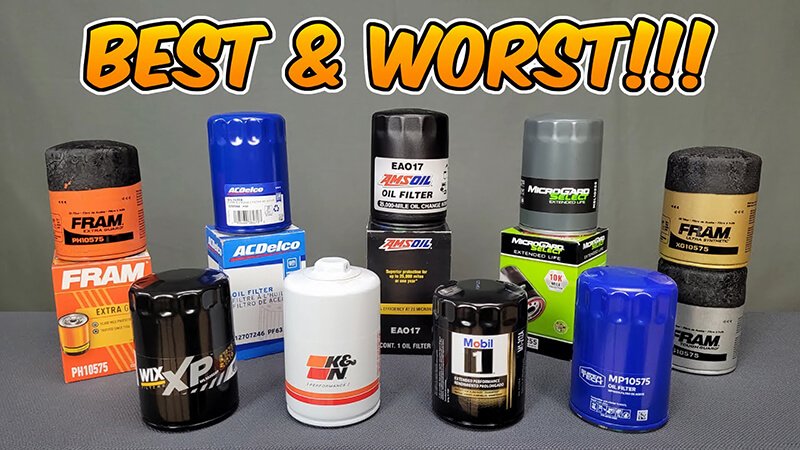
Does it really matter what oil filter you use?
Some may wonder if it really matters which oil filter you use. Does spending extra money on a premium filter result in better performance? The answer is yes—let's dive into why the quality of your oil filter can make a significant difference.
Yes, it does matter which oil filter you choose. A high-quality filter can improve engine efficiency, protect vital engine parts, and extend engine life. Let’s see why investing in a quality filter is worth it.
While a standard, budget oil filter can get the job done, premium oil filters offer several distinct advantages that can improve the overall health and longevity of your engine.
-
Better Filtration7: High-quality filters use advanced materials that trap more contaminants. These filters are typically designed with finer pores and better filtration media, allowing them to catch smaller dirt and particles. This reduces the chances of contaminants circulating through your engine, protecting critical engine parts such as pistons, rings, and valves.
-
Improved Flow8: Premium filters are designed to allow better oil flow, ensuring that your engine’s oiling system remains consistent even under heavy load or extreme temperatures. Poor oil flow can lead to insufficient lubrication, causing premature wear and damage to the engine.
-
Stronger Build9: A better filter is often constructed using more durable materials, which makes it more resilient under high pressure. This is particularly important in high-performance or older engines, where higher pressures may cause a substandard filter to collapse or fail.
-
Longer Lifespan:
Many premium filters come with increased capacity and can hold more contaminants before they need replacing. This means they require less frequent changes, which can save you time and effort in the long run.
Advantages of Premium Oil Filters
| Feature | Benefit |
|---|---|
| Superior Filtration | Traps smaller particles, ensuring cleaner oil. |
| Enhanced Durability | Withstands higher pressures and extreme conditions. |
| Longer Lifespan | Can hold more contaminants, reducing the need for frequent changes. |
| Better Oil Flow | Ensures smoother oil circulation, even under heavy load. |
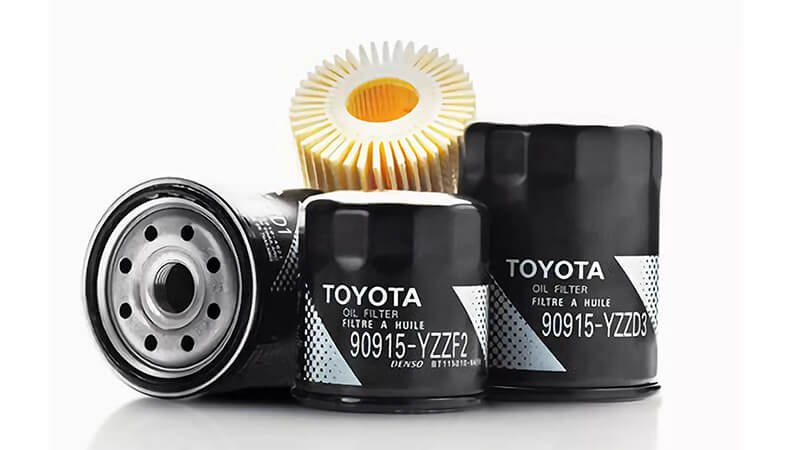
How do you clean and replace an air filter?
Your engine’s air filter is just as important as the oil filter when it comes to maintaining vehicle performance. But how do you clean and replace it properly? Let’s take a look at how you can keep your air filter in top condition.
Cleaning and replacing an air filter is simple and essential for keeping your engine running efficiently. Over time, air filters can become clogged with dirt, reducing engine performance.
The air filter is responsible for preventing dirt, debris, and other contaminants from entering the engine, which could damage engine parts. Over time, the filter collects these particles, reducing the airflow into the engine. If left unchecked, this can reduce fuel efficiency, power, and engine longevity. Here’s how to keep your air filter in top condition:
-
- Look for visible signs of dirt or wear, such as heavy discoloration or blockages.
- Check for any tears or damage in the filter media, as this can compromise its effectiveness.
-
- For reusable filters (like foam or cotton filters), you can clean them by using a vacuum to remove dirt or compressed air to blow out debris.
- Avoid using water on paper filters, as it can damage the filter media.
-
- If the air filter is too clogged or damaged, it’s best to replace it entirely.
- Follow your vehicle's manual for instructions on how to access and replace the filter.
Air Filter Maintenance Checklist
| Task | Frequency |
|---|---|
| Check Air Filter Condition | Every 12,000 miles or as per manufacturer recommendation. |
| Clean Air Filter | When it appears clogged or dirty (using a vacuum or compressed air). |
| Replace Air Filter | If the filter is damaged or overly dirty. |
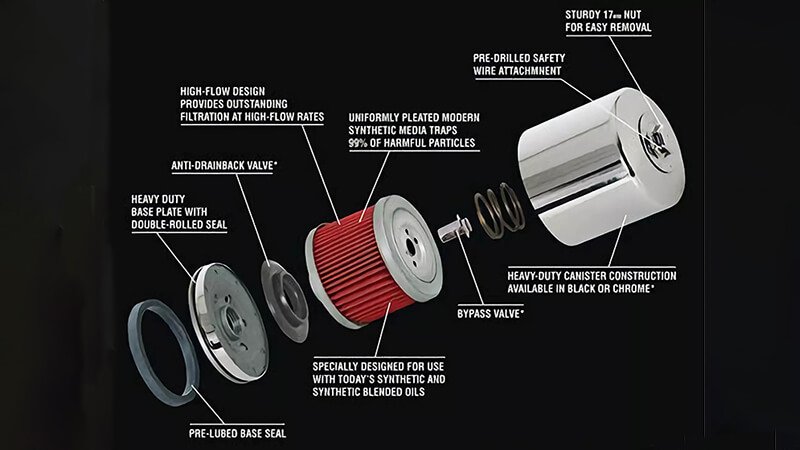
Do more expensive oil filters make a difference?
It’s tempting to stick with the cheapest option when it comes to oil filters. But do more expensive filters offer better protection? The answer might surprise you. Let’s explore whether the price tag really reflects the performance.
More expensive oil filters can make a difference in terms of durability and filtration. However, the cost may not always be justified depending on your vehicle’s needs and usage.
When it comes to oil filters, the price can vary significantly. Premium filters often come with higher-quality materials, advanced filtration systems, and increased durability. These filters are designed to trap more contaminants and withstand higher pressures, which is beneficial for high-performance vehicles or those driven in harsh conditions.
However, for standard vehicles that don’t experience extreme conditions, a mid-range oil filter might suffice. The key is to balance cost with the level of filtration your car needs. Expensive filters are often unnecessary for vehicles that are not subjected to heavy use or extreme environments.
That said, some premium filters may offer additional features, such as bypass valves13 or anti-drainback valves14, which ensure that the oil flows more efficiently and doesn’t cause engine damage when the vehicle is started. For those who want the best protection and longer intervals between oil changes, investing in a high-quality filter might be worth it.
Cost vs. Performance
| Price Range | Best For |
|---|---|
| Cheap Filters | Standard vehicles and mild driving conditions. |
| Mid-Range Filters | Most vehicles with average usage. |
| Premium Filters | High-performance vehicles and extreme conditions. |
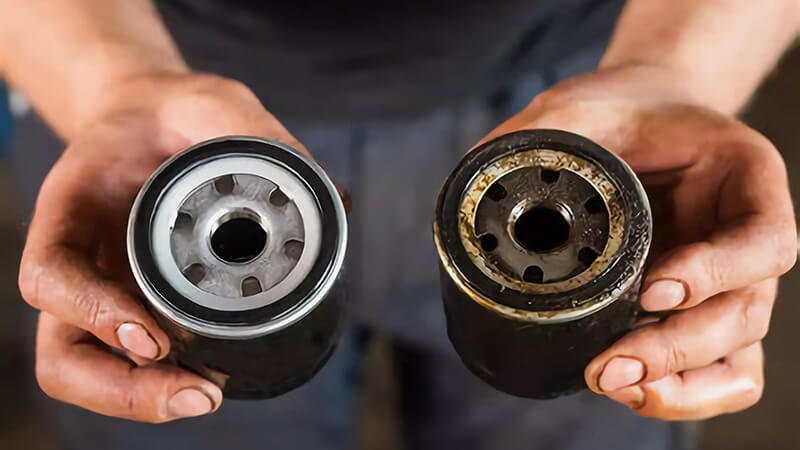
Conclusion
In conclusion, choosing the right oil filter and oil for your vehicle is essential for maintaining engine health. While filters vary in quality and price, always prioritize the needs of your vehicle. Follow the manufacturer’s guidelines and take the time to select filters and oils that best match your car's performance requirements.
If you want to know more details about Oil Filter, do not hesitate to reach out to us15. We will provide you the best products and solutions.
-
Learn more about the common oil filter type and how it functions in vehicles. ↩
-
Understand the differences and advantages of cartridge oil filters for specialized vehicles. ↩
-
Discover the advantages of magnetic oil filters and their role in engine protection. ↩
-
Learn how viscosity affects engine oil flow and performance at different temperatures. ↩
-
Understand the various oil types, including conventional, synthetic, and synthetic blend, and their uses. ↩
-
Discover how to match oil to the performance needs of your engine. ↩
-
Understand how better filtration in premium filters can protect engine parts from harmful contaminants. ↩
-
Learn how improved flow in premium filters enhances engine lubrication and reduces wear. ↩
-
Discover how durable materials in premium oil filters prevent collapse and failure in high-pressure engines. ↩
-
Learn how to identify signs of wear and tear in your air filter to ensure engine protection. ↩
-
Discover safe cleaning techniques for reusable filters like foam and cotton to maintain airflow. ↩
-
Find out the steps involved in replacing an air filter to keep your engine running smoothly. ↩
-
Learn how bypass valves in premium filters can optimize oil flow and protect the engine. ↩
-
Understand how anti-drainback valves prevent oil from draining and protect the engine during startup. ↩
-
Know more about oil filter here. ↩

